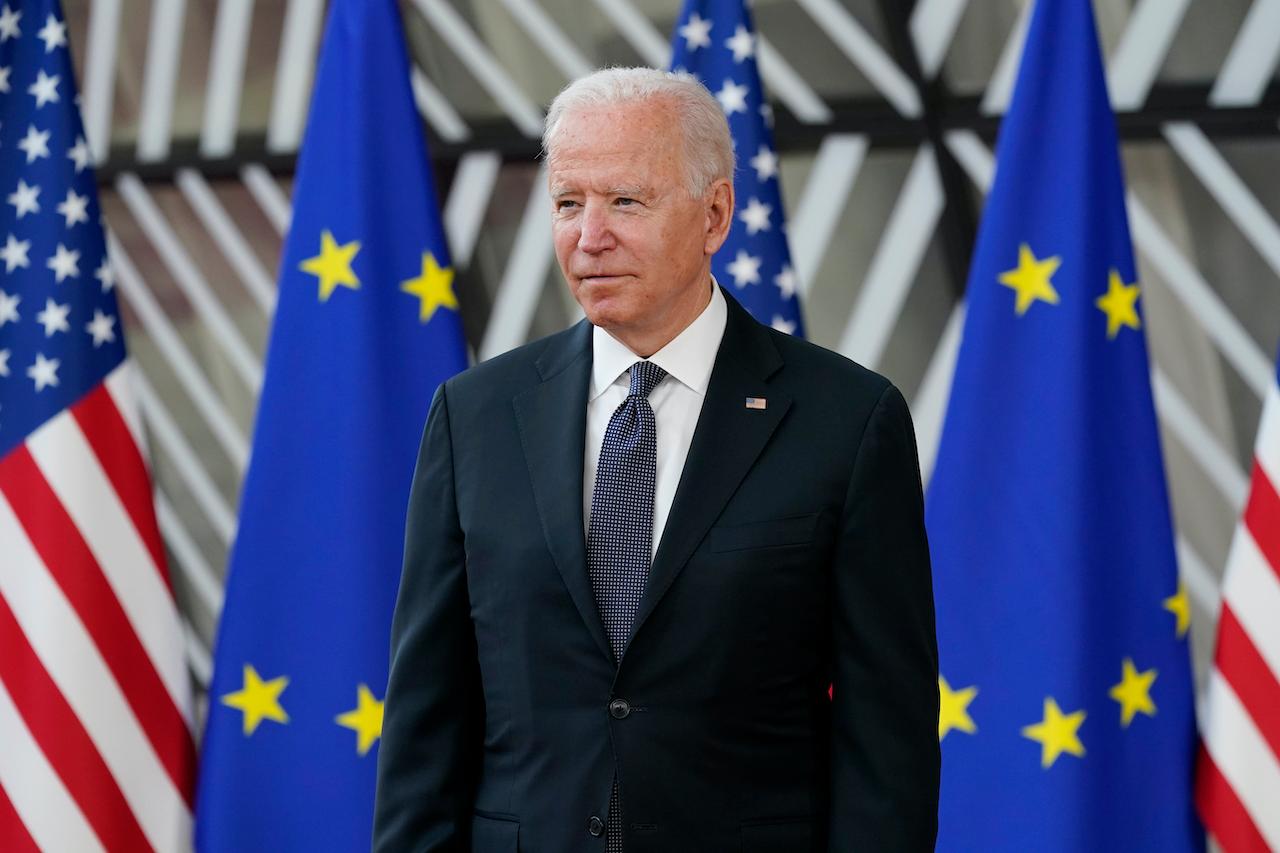Biden ends EU trade war, renewing transatlantic ties
Freezing trade conflicts with the EU gives both sides more time to focus on mutual concerns such as China.
Just In
When he met European Union leaders on Tuesday, President Joe Biden ended one front of a Trump-era trade war by agreeing a truce in a transatlantic dispute over aircraft subsidies that has dragged on for 17 years.
At the start of his first EU-US summit as president, Biden said the world was shifting and that Western democracies needed to come together to address China’s rise, the Covid-19 pandemic and climate change.
Earlier, he had told reporters he had very different opinions from his predecessor, Donald Trump, who visited the EU in May 2017, but later imposed tariffs on the bloc.
Biden said, “It’s overwhelmingly in the interest of the US to have a great relationship with Nato and the EU.”
The president and the EU agreed to remove tariffs on US$11.5 billion worth of goods from EU wine to American tobacco and spirits for a period of five years. The tariffs were imposed by each side on a tit-for-tat basis over mutual frustration with state subsidies for US aircraft maker Boeing and European rival Airbus.
European Commission chief Ursula von der Leyen said, “This really opens a new chapter in our relationship because we move from litigation to cooperation on aircraft after 17 years of dispute.”
Biden repeated his mantra, “America is back” and spoke of the need to provide good jobs for European and American workers, particularly after the economic impact of the pandemic.
According to a draft EU-US final statement seen by Reuters, Washington and Brussels will also commit to ending another row over punitive tariffs related to steel and aluminium.
Freezing these trade conflicts gives both sides more time to focus on broader agendas such as concerns over China’s state-driven economic model, diplomats said.
There are no firm new transatlantic pledges on climate in the draft summit statement, however, and both sides continued to steer clear of setting a date to stop burning coal.
Biden sees the EU as an ally in promoting free trade, as well as in fighting climate change and ending the pandemic.
On the larger stage, he is seeking European support to defend Western liberal democracies in the face of a more assertive Russia and China’s military and economic expansion.
“We’re facing a once in a century global health crisis,” he said. “And Russia and China are both seeking to drive a wedge in our transatlantic solidarity.”
He will meet Russian President Vladimir Putin in Geneva on Wednesday.
Subscribe to our newsletter
To be updated with all the latest news and analyses daily.
